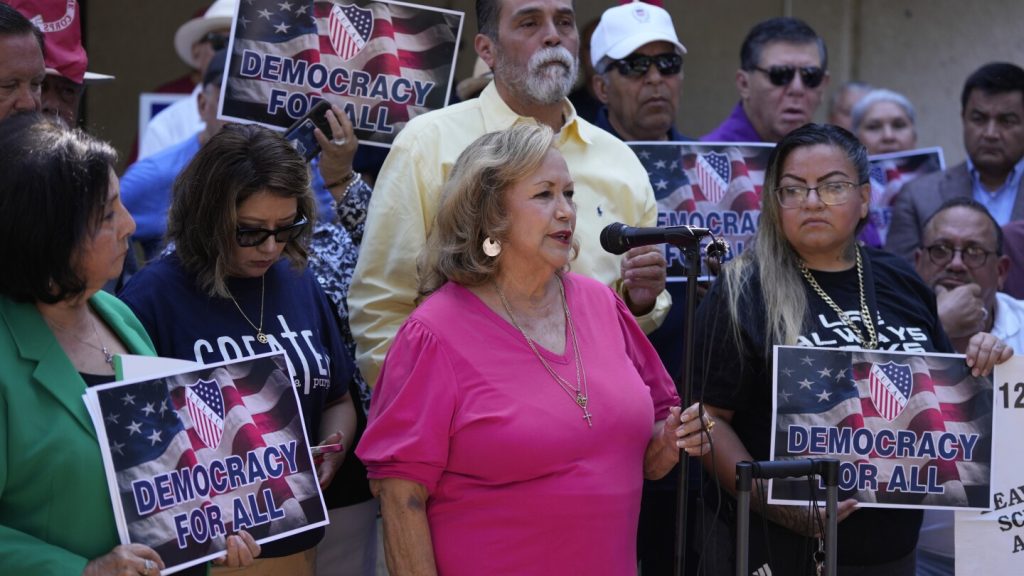Civil rights groups are outraged after a series of raids on the homes of Latino campaign volunteers in Texas. The raids were conducted as part of a state investigation into alleged election fraud, although no charges have been filed against those who had their homes searched. The targets of the raids, including an 87-year-old campaign volunteer, and their supporters claim they did nothing wrong and see the searches as an attempt to suppress Latino voters. Republican Texas Attorney General Ken Paxton, whose office is leading the investigation, has confirmed that agents executed search warrants but has provided little additional information.
Paxton stated that his office’s Election Integrity Unit began looking into the allegations of election fraud and vote harvesting after receiving a referral from a local prosecutor. He mentioned that a two-year probe provided enough evidence to obtain a search warrant and emphasized the importance of secure elections. Last week, agents entered the homes of at least six people associated with the League of United Latin American Citizens (LULAC), seizing numerous documents, computers, cellphones, and other items. Among those targeted were Cecilia Castellano, a Democratic state House candidate, and Manuel Medina, a San Antonio political consultant.
The raids have targeted individuals associated with LULAC, one of the nation’s oldest civil rights groups. Lidia Martinez, an 87-year-old who instructs older residents on how to vote, had her home rummaged through by investigators and her smartphone and watch seized. Martinez stated that officers interrogated her about others associated with LULAC and claimed that she was only helping seniors. LULAC has requested the Justice Department to investigate the raids, potentially blocking further search warrants and pursuing criminal and civil charges against Paxton’s office. A Texas district judge has granted Medina a protective order to prevent authorities from searching through his records, with a hearing scheduled for September 12.
Recent years have seen Texas tighten voting laws and increase penalties related to election fraud. Critics argue that these changes are attempts to suppress minority turnout, while Republican lawmakers maintain they are necessary safeguards. Paxton, who has made prosecuting voter fraud cases a top priority, faced scrutiny from the state’s bar association for his failed attempt to overturn the 2020 election based on false claims of fraud. His office campaigned against judges who limited its power to prosecute election fraud without permission from local district attorneys. Earlier this year, a state appeals court overturned a woman’s voter fraud conviction and five-year prison term for casting a ballot in 2016 while on probation for a felony conviction that she did not know was illegal.


